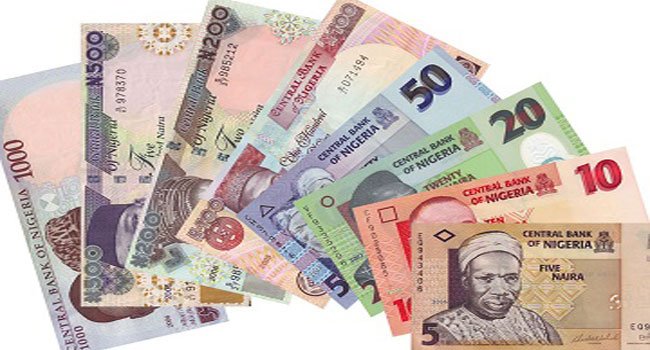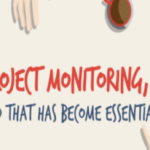It is not easy to live in Nigeria on a normal day and now it is more difficult to get by on daily basis in this Corona Era. The latest inflation rate figure released by the National Bureau of Statistics, show an increase in inflation rate for the 8th consecutive times to 24-month high.
However, wages and household income did not any rise with the inflation. Rather it is being diminished by the economic impact of the virus outbreak.
Coronavirus Pandemic has caused economic downturn in the country. Markets and business are partially closed, companies are cutting salaries or laying off workers, relations abroad are no longer sending money as they use to and so on.
All in all, overall income has been affected. The times are hard. To get through financially difficult times, it is important to review ones expenses and place them on scale of preference. Separate it into essentials and luxuries (non-essentials), then determine on what to spend the limited resources and which items can be crossed off the list.
Crossing items off your list might be difficult, thus we will be looking at various ways you can apply in order to cut your expenses and be able to save money during financial difficulties.
Read more; 4 out of every 10 Nigerians are Poor – Government Agency
Budgeting: determine how much to spend on the things you want, such as food, shelter, clothing, airtime, entertainment etc. It is important to set limit to your spending and ensure that you do not exceed the planned limit. Keep track of your spending, know where you spend your money. Little reduction can save you a good amount of money while maintaining good quality life.
Get Insurance: Car, home, business, health insurance will protect you from high unexpected expenses. With the increasing rate of fire incidents in Nigeria, one can protect him/herself from the loss that will occur from unforeseen events.
Before signing insurance policy with any Insurance company, it is important that you do your due diligence. Gather every possible information you can about the company. Some insurance companies in Nigeria do not pay policy holders. One of such is Niger Insurance Plc, personally I have a bad experience with the company that, 2 years on till now I am yet to be paid by the company.
Read also; Access Bank Plc: Banking and Financial Services for MSMEs
Avoid use of credit cards: it is just another form of loan. It is very easy to use; punch in your pin or swipe your card in the hope of paying later. This is a temptation you should strive to overcome. If you can’t afford it, don’t buy it.
Change Bank: if your bank charges you unnecessarily without cause, open account with another bank.
Limit online shopping: in as much as shopping online makes it easier for you to buy what you want, from the comfort of your home by clicking few buttons and have it delivered to your door step, online shopping is an easy way to spend money.
Therefore, you should avoid it as much as you can. Cancel subscriptions you don’t need or use often such as workouts, gym or clubs. You can workout at home without spending money. There are many free apps you can download from the Play Store.
You can limit your online shopping by trying the following; uninstall the apps that entice you with mouth watering offers, delete your cards from the website you shop often and try using manual input for the numbers, this will give you a moment of reflection on the importance of the item you intend to buy. In addition, you can apply the 24hr rule, which will give you more time to contemplate your decision.
Read further; Beginners guide to stock investment
Change network providers: cost of service varies for different network providers. Change from the expensive to less expensive. Check different providers until you get the one that suit your budget. The difference might not seem much but, remember that if you can save little amount of money across different expense items, it will add up to something tangible.
Get rid of cable television: DSTV should be the first item to cut off in this area. If you are working on a tight budget, you have to make some sacrifices on luxury items. There are other cheaper options than DSTV, such as Go Tv, Startimes and so on. Though it might have limited channels, with lower image quality, but you will have the basic channels you need to get by on daily basis.
Cook at home: eat-out or order-in is easier and faster however, it is more expensive than home cooked meal. You can save a lot of money if you make a habit of cooking more often and avoid food wastage. Eat-out cuts a hole in your pocket, but the good news is that, you can cover the hole by cooking in your kitchen.
Have no spend days in a week: Mark out some days of the week when you are not permitted to spend money on anything. It might sound odd but if you can give it a try, it works.
Cutting of expenses is not an easy thing to do. It requires discipline. Difficult situations require difficult measures. Save all you can from every expense you make. The money you saved today can be used tomorrow.
This is the time to scale down luxury purchases that is eating deep into your wallet. Prioritize you expense and think about what value the things you buy add to your life. Ask yourself, can I do without this? Do I have an alternative I can use instead of buying a new one? Am I paying a fair price for this item or service? Can I get the same offer at a better price? The question goes on.
Finally, make every money count, if you don’t need it, don’t buy it. Little savings can add up to big money.
Written by;
Ifunanya Ikueze





















































